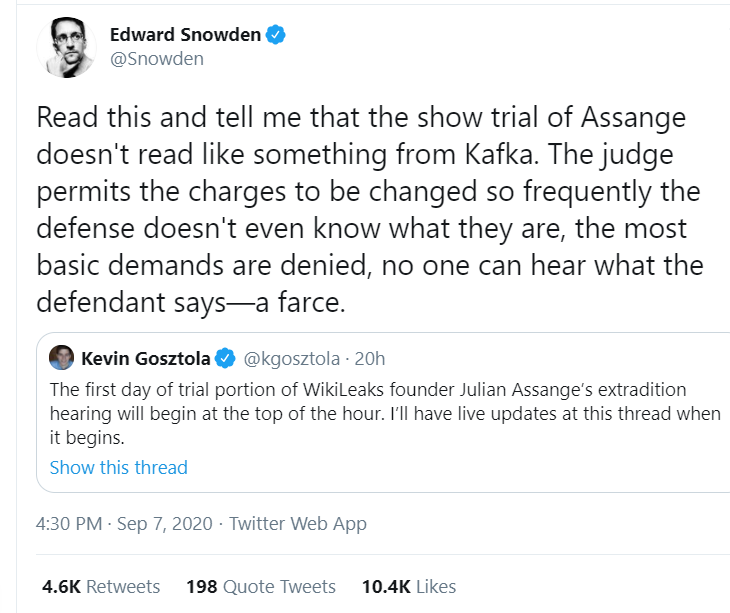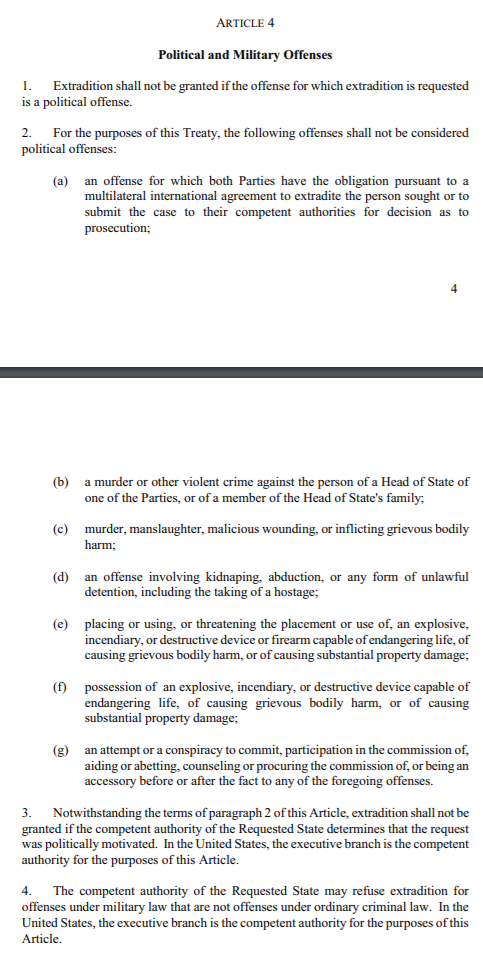I'm unsure I'll be able to tune into this but will see how things go of course.
Topic: Noam Chomsky, Alice Walker, and Daniel Ellsberg: Defending Julian Assange
Description: Julian Assange faces extradition from the United Kingdom to the United States, where he will face a potential sentence of 175 years prison. The WikiLeaks editor and publisher’s extradition is being sought for publishing U.S. government documents in 2010, which exposed war crimes and human rights abuses. The indictment marks the first-ever use of the Espionage Act for the publication of truthful information in the public interest, and it represents a gravely dangerous attempt to criminalize basic journalistic activity, threatening journalists' right to publish and your right to know.
Political comedian Jimmy Dore will host a panel featuring Noam Chomsky, Alice Walker, and Daniel Ellsberg, preeminent experts on free speech and the fight to protect it, for a discussion on Assange's persecution just 2 days before his extradition hearing resumes in London. They will examine the implications of his indictment and explain why they have joined up as co-chairs of a new U.S. support group for Assange.
This event will be livestreamed at Courage's YouTube channel: https://is.gd/CourageYouTube
Time: Sep 5, 2020 01:00 PM in Eastern Time (US and Canada)







 Reply With Quote
Reply With Quote







 @MElmaazi
@MElmaazi




Bookmarks